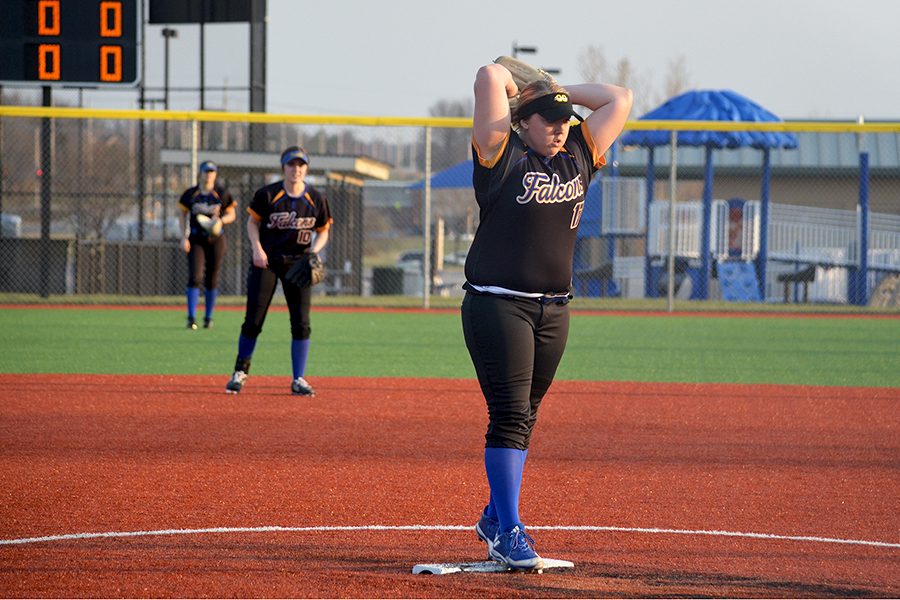Athletes continue careers in college
Maryssa Rollin, senior, is planning on attending Hutchinson Community College to play softball. Above, Rollin is shown at practice the previous year. Rollin has been playing softball for the high school team for all four years.
April 11, 2018
For many athletes, high school sports are the last glimpse they will ever get at an organized sport. However, a select few play at a high enough level to get scholarships from colleges and continue their sports careers, as 20 athletes have at this school.
Studies have shown that a mere two percent of high school athletes will go on to win a scholarship at an NCAA college and only one percent will get one for a Division I school. Despite these odds, local students can and have gone on to have professional careers. Players such as Bubba Starling, Kit Pellow and Gus Milner, who all competed in the Sunflower League, went on to have successful professional careers.
The 20 athletes who will next year play sports on a college scholarship include Lucas Shryock and Jeremiah Tesfaye in cross country; Courtney Reynolds, Alex Clark and Maryssa Rollin in softball; Brian DeSanto in soccer; Emmanuel Okwuone, Natalie Miller and Shryock in track; Tyler Cavil, Jacob Worley, Winston Porter, Jamison Phelps and Kevin Burdette in football; Jace Koelzer and Nick Jouret in wrestling; Lee Sexton in volleyball; and Ryan Koval, Jon Moll, Trey McClelland and Andrew Llamas for baseball. Shyrock has scholarships for two sports, track and cross country.
However, some players receiving scholarships may not want to use their scholarship to eventually go pro, instead using it to pursue their future career while getting some of their college paid for. Such is the case with Koval. Others may want to use the community college route when they are still not sure what position they want to play. In baseball, this often occurs when a player still plays a field position and pitches.
Koval, who will go to Wichita State University, is using his scholarship to continue to play baseball while also following his passion for criminal justice. “I’d much rather get a good education and a degree while playing the game I love,” he said.
“I want to continue to play the game I love… and I am fortunate enough to play at the next level,” Koval said.
Two other players, Koelzer and Jouret, are on the wrestling team. Koelzer will be attending the University of Northern Colorado on a full-ride scholarship, which means all of his fees and college tuition will be paid for by the school so long as he is on the wrestling team.
Jouret has been offered scholarships from the University of Nebraska-Kearney, Oklahoma State University, and the University of Central Oklahoma, but has yet to make a decision as of April 2. He is the winningest wrestler in the history of this school with 169 victories in his high school career.
“Both Nick and Jace have played an instrumental role in the rise of our wrestling program. They’ve helped change the culture of our team and have elevated expectations for the program through their leadership,” Conor Fitzgerald, head wrestling coach, said.
Fitzgerald also said he believes these two will be All-American multiple times at their respective schools. “In the right school, the sky’s the limit,” he said.
Balancing schoolwork and training is one of the major areas that many find themselves struggling in. “Studying as much as possible is what I’m going to try and do, hearing from players that it can be challenging but very manageable at the same time,” Koval said. “[Education] is more important to me than baseball. I’d rather be getting a good degree from a good school.”


Marilyn Jouret • Apr 26, 2018 at 8:02 pm
What a great article featuring your athletes !
So glad for the support they receive in Olathe including coaching, acedemic, and leadership..
I am proud of parental support and the overall success of so many athletes.
Thank you and we are excited for the future !
MARILYN JOURET